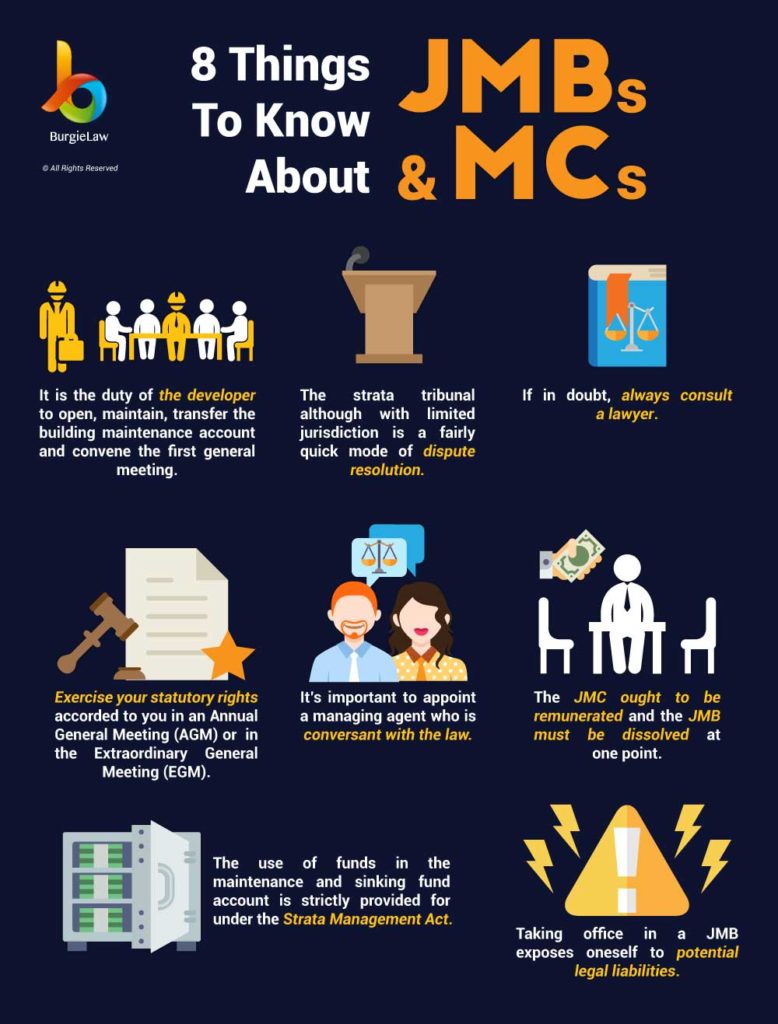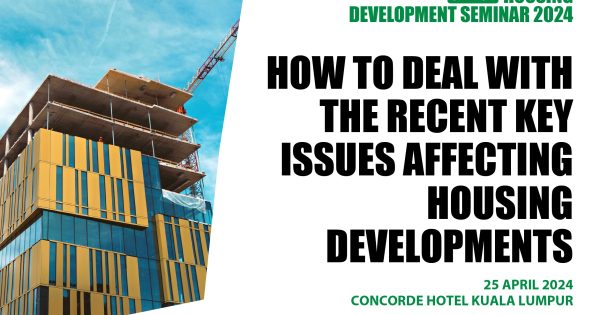8 Things To Know About JMBs/MCs

In the course of practising law, I’ve noticed that there’s an increase of disputes involving Joint Management Bodies (JMBs) and/or Management Corporations (MCs). This is inevitable because of the increase of stratified developments and also legal awareness among the dwellers within. These issues vary and include challenging the validity of proxy holders, use of the maintenance account and sinking funds, the efficiency of managing agents, statutory duties and so on. I’ve also been exposed to many operational issues faced by a Joint Management Committee (JMC) and MCs because at the time of writing, I’m chairing 3 different JMBs.
Some of these issues were trivial but some were major enough to secure a conviction for charges under misappropriation of property.
Many parcel owners have viewed the responsibilities of JMC a menial and easy one. In reality however, it is the exact opposite especially if the JMC/MC oversees a mixed development which is very common nowadays. In fact, to take office in JMC, the person must at least be conversant with the law of contract, the law of meeting, law of defamation, law of tort, Building and Common Property (Maintenance and Management) Act 2007 (BCP) – which is now repealed, Strata Management Act 2013 (SMA), Strata Titles Act 1985 (STA).
I’m writing this article post SMA and I will further write a separate article to mark the significant differences between the BCP and SMA.
In view of the vast areas I have encountered, I wish to share with readers the top 8 most important things one should know about JMCs/MCs. This is the first of a series and for the 8 items listed, I’ll elaborate them in 8 separate articles with a final concluding article. However, they may not be written in the order set below.

The list above is by no means exhaustive and I must caution all JMC members to know what you are getting into when you offer to take office.
In fact, I would go one step further to suggest that each JMC member should attend an intensive training course for the simple reason of avoiding any unnecessary entanglement with the law in future.
Lastly, maintaining a building is not an easy task. In addition to attending to the usual maintenance issues, JMB must also pay equal attention to the policies of hiring staff and payment of bonus, selecting contractors and appointing managing agents, setting key performance index, determining the assembly points in case of a fire, ensuring fire regulations are adhered to and complying with the various newly passed legislation like the Personal Data Protection Act 2010. If in doubt, always consult a lawyer and get a lawyer to sit in each JMC meeting ̶ just like how you would appoint an external auditor to audit your accounts.
Getting your house in order at all times will minimize liabilities.
This article is part of a series: Part 1 | Part 2 | Part 3 | Part 4 | Part 5 | Part 6 | Part 7 | Part 8

